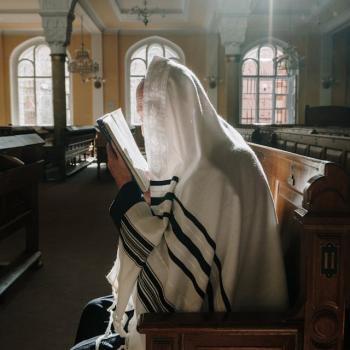Next I'd recommend Sarah Winter's Kharis: Hellenic Polytheism Explored, which is a much more approachable and readable guide to the religion written from a contemporary practice-oriented perspective. It's a slender volume but it covers all of the basics and gives you pointers on where to look next and how to get started worshiping the gods right away.
Where can we find your books?
All of my books are available through Nysa Press, which can be found by visiting thehouseofvines.com. They can also be found on Amazon.com and all of their affiliates as well as in a number of prominent bookstores. If you'd like your local shop to carry the Nysa Press titles send them my information and I'll gladly work out some kind of arrangement with them.
If someone wanted to seek you out for divination, what should they do?
Well, first I'd recommend that they thoroughly read through the oracle page on thehouseofvines.com, which explains the different methods I use and the various levels and rates. It is also important to decide whether you want an oracular consultation with Dionysos or have me do some divination for you. The Dionysos oracles only happen once a month but since they are his gift to the community they are offered free of charge. Divination is offered all the time, but I ask a modest fee for my efforts.
The person should write to me explaining what they want. However it is best to be discreet in the details you share, especially when it comes to the Dionysian oracles. I don't need—or want—your extended history and thoughts on the situation. I try to go into it with as much of a blank slate as possible so that my own impressions and ideas do not influence what comes through. This is absolutely essential with the Dionysian oracles; I just skim the e-mail requests and send a laconic reply notifying the person that I received them and then I try to put it out of my mind completely until I go to transcribe the question the day of the session. But it's also my preferred method with the divinations. It's my job to tell you what I see through the tools, nothing less and nothing more than that. In fact when I'm doing readings for people in person I rarely look them in the eye so that I can avoid unintentionally picking up on subtle things like gesture and expression that might inadvertently influence my interpretation. So, in other words keep it short, keep it simple, and we can chat about what's going on after the session is over. You're paying for my skill as a diviner, not a therapist.
Do you see any relationship between Bacchus and Dionysos? Do you see Them as the same Deity, different "paths" of the same Deity, or completely different Beings?
I know that some people find it problematic to equate the Greek and Roman deities but there's absolutely no basis for distinguishing between Bacchus and Dionysos. First off there isn't even a difference in names since Bacchus is just the Latinized form of the Greek Bakchos, which itself is thought to derive from the Lydian Baki, which we find designating both the god and his ecstatic worshipers. This means that the name goes back to the 7th century B.C.E. and is found in all sorts of words for intoxication and ritual madness well before the Classical period.
Secondly, and most significantly, the identification of the two isn't a case of casual interpretatio graeca whereby an indigenous and originally distinct deity is recognized as possessing similar traits and therefore is claimed to be the same god just with a locally appropriate form. That process may have happened with Liber Pater, Fufluns, and related Italian deities but there was never an indigenous Bacchus. All of the sources from Livy on down—including inscriptions and the archaeological record—make it perfectly clear that he was a foreign import brought from the Hellenic mainland to Rome by way of Magna Graecia and Etruria.
Even once he had gained wide popular acceptance, Bacchus continued to be worshiped according to the ritus Graecus or with Hellenic ceremonial elements intact. In fact this was a big part of what contributed to the Senate's antipathy for the Bacchanalia—fear of corruption and invasion, that the devotees of the god were setting up their own miniature religious "nation" in the heart of Rome itself. (And of course all that homosexuality and cross-dressing it encouraged.) They outlawed his worship and the keeping of his festivals except in the case of certain hereditary priesthoods and persecuted the Bacchic devotees, which resulted in the deaths of thousands.





